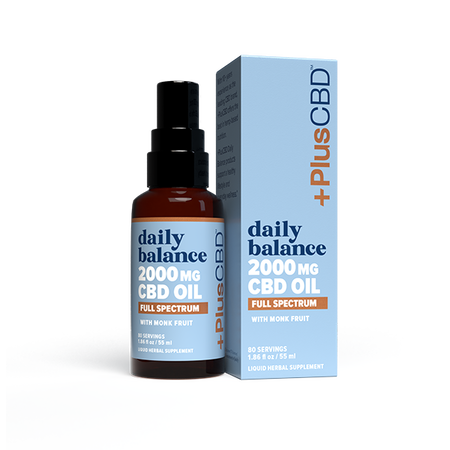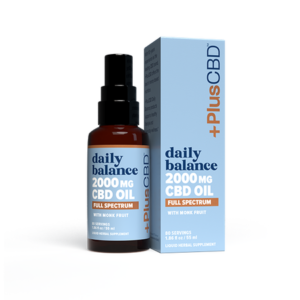Psychotherapy is a type of mental health treatment. It can be used alone or in combination with medications to treat mental illnesses. It can also be used to help you manage problems in your life.
Saunders Therapy Centers, Inc offers a type of treatment that can help people deal with depression, anxiety, relationship problems, and other issues. It can also treat certain mental health disorders, such as bipolar disorder and schizophrenia. Often, psychotherapy is combined with medication.

There are dozens of different psychotherapy approaches, and the best one for you depends on your goals. For example, do you want to work on a specific problem, or do you just want to feel better? You should also consider whether you want to be in therapy alone or with family members or a partner. Finally, you should decide how long you want to be in therapy. Some people stay in therapy for weeks, while others may need years of treatment.
A good therapist will take the time to understand your needs and concerns. They will also explain what type of psychotherapy they will use and how long each session will be. They will also ask you to fill out some paperwork. You should bring your insurance card to the first appointment and a form of payment if you plan to pay out-of-pocket.
Most patients will need to go to therapy sessions every week or other week for a few months. The frequency of the sessions depends on the severity of the problem and how quickly you start to see results. Your therapist will help you set goals for your progress, and they will work with you to make sure you meet those goals.
In addition to psychotherapy, some treatment centers offer family therapy and sex therapy. They also provide group therapy and support groups for people with the same problems. These groups are a great way to find support from others who have similar problems and to learn more about coping with them.
Many people are suffering from mental health problems but don’t know where to turn for help. Psychotherapy can help them overcome their challenges and live a healthier life. It can address a wide range of issues, including depression and anxiety, addictions, low self-esteem, and relationship problems.
Counseling or therapy can help people with a variety of mental health issues, including stress, anxiety, and low self-esteem. It can also help patients overcome relationship problems and deal with grief. Often, these issues stem from childhood experiences or past traumas. Counseling is a process that requires the patient to discuss uncomfortable or upsetting feelings and memories. This may cause the patient to feel worse at first, but it is a necessary part of the healing process.
A counselor or therapist can work with individuals to explore their own personal goals and ways of coping with the problems they are facing. They will use the information they receive from you to develop a treatment plan. The plan may include different techniques and types of psychotherapy. For example, a therapist may use cognitive-behavioral therapy to change negative thoughts and beliefs that contribute to a person’s problems. Other approaches to psychotherapy include interpersonal therapy, group therapy, and transpersonal psychology.
It is important to find a counselor who you feel comfortable working with. A good therapist will have a deep understanding of the issues that you are facing. They should be able to listen and provide support without judgment. They should also be able to guide you through difficult emotions and help you come to terms with your diagnosis.
Counseling can be used in conjunction with medication or to address underlying psychological causes of a disorder. It can also be a useful tool for family members of those suffering from a mental illness. Family therapy sessions can help family members communicate more effectively and support each other. Counselling can also be used to address everyday problems, such as difficulty relating to others or meeting personal goals.
You can find a therapist in your area by asking for a referral from a doctor or nurse. You can also check with your employer’s Employee Assistance Program (EAP) or the local community health department for resources. You can also search online for counseling services near you. Be sure to choose a professional who is licensed, has experience and has the right qualifications. You should also make sure that the therapist you choose is registered with a PSA-accredited register. This ensures that they have the necessary skills and training to practice in the UK.
Psychiatry is the branch of medicine focused on the diagnosis, treatment, and prevention of emotional and behavioral disorders. A psychiatrist is a medical doctor (M.D. or D.O.) who specializes in mental health and is qualified to assess both the psychological and physical aspects of a patient’s problems. Patients seek psychiatric help for many reasons, including sudden symptoms such as panic attacks or frightening hallucinations, long-term feelings of sadness, hopelessness or anxiety that won’t go away, and trouble functioning in everyday life.
During a psychiatric evaluation, your psychiatrist will ask questions about your moods, habits and feelings and then use this information to determine whether or not you have a mental illness. They will also look at your family history and other medical tests to get a better picture of your condition. They will then work with you to develop a treatment plan that may include psychotherapy or medication.
There are several specializations in psychiatry, which require additional training beyond medical school. These include child psychiatry, adult psychiatry, addiction psychiatry, forensic psychiatry and community psychiatry. Psychiatrists may practice in outpatient clinics, on a hospital psychiatric ward, or as consultants, educating primary care teams about the psychiatric conditions of their patients.
Psychiatrists often treat patients with both psychotherapy and medication. In general, a psychiatrist will prescribe medications for the short-term while psychotherapy is used to address long-term issues and build trusting relationships over time. Psychiatrists can also perform certain procedures like electroconvulsive therapy, transcranial magnetic stimulation, or ketamine-assisted therapy. They are also trained to collaborate with neurosurgeons and manage psychiatric care before and after brain surgery, such as deep brain stimulation electrode placements. For these reasons, psychiatry is a unique and rewarding career path for doctors who enjoy spending time with their patients and getting to know them over long periods of time. In recent years, the field has become more competitive as more students realize the importance of a good work/life balance and see psychiatry as an attractive career choice. Many psychiatry professionals are also enjoying the fact that this is one of the few medical fields in which they have regular 45-60 minute appointments with their patients.
A rehabilitation center can provide many different services, including physical and occupational therapy. Some also offer case management, which is an ancillary service that helps disabled people live independently. This includes helping them find work or training, finding low-cost places to live, and connecting them with doctors who specialize in their conditions. Case managers can also help them find social connections and discover personal motivation and emotional purpose.
Inpatient rehabilitation programs require a client to live on-site for a set period of time. This may be necessary if the patient has a serious illness or injury that requires comprehensive, round-the-clock care. This type of rehabilitation is usually provided in a hospital or clinic, and it involves a physician-led multidisciplinary team of rehab specialists. Typically, the team will include physical therapists, occupational therapists, and speech therapists. The patient may also receive assistance from a nutritionist or nurse.
Outpatient rehabilitation centers are a more flexible option for those with chronic illnesses or injuries. They are not as intensive as inpatient rehabilitation, and they allow patients to continue their daily lives at home while undergoing treatment. Outpatient rehabilitation is also less expensive than inpatient rehab, and it has a higher success rate than inpatient rehab.
During outpatient rehabilitation, patients attend therapy sessions on a regular basis for 30 minutes to an hour each day at a clinic. These sessions are followed by prescribed activities that must be performed at home, including exercises, stretches, and other therapeutic activities. These activities can improve a patient’s quality of life by preventing further disability and reducing their pain. In addition, outpatient rehabilitation can help patients develop new coping skills and increase their self-esteem.
While outpatient rehabilitation may not be as effective as inpatient rehab, it is a good option for those who cannot afford the cost of inpatient rehab. Inpatient rehabilitation programs are generally covered by health insurance, but the patient must demonstrate that they require intensive rehabilitative therapy and treatment and that they can safely participate in the program.
Inpatient rehabilitation is offered in stand-alone rehab facilities, separate departments of hospitals, and nursing clinics. It consists of a physician-led, multidisciplinary team of rehab specialists who work together to provide a comprehensive, individualized treatment plan. It is usually a requirement for coverage under private health insurance, but some public insurers also cover this treatment.


